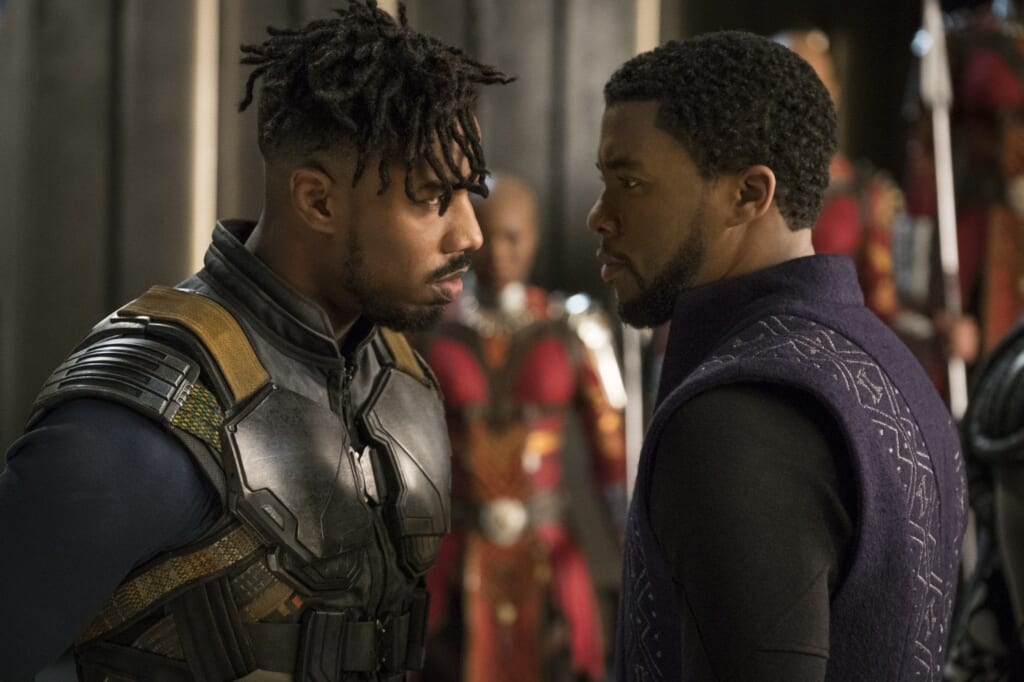Wakanda Forever: ‘Black Panther’ makes its way to the Smithsonian
The Smithsonian’s National Museum of African American History and Culture had acquired several objects from Black Panther, including the costume of the title character.
Black Panther’s super hero costume is coming to the Smithsonian!
This week it was announced that the Smithsonian’s National Museum of African American History and Culture had acquired several objects from the blockbuster film, including the hero costume worn by actor Chadwick Boseman; a shooting script signed by Ryan Coogler (co-writer; director), Kevin Feige (producer, president of Marvel Studios), Nate Moore (executive producer) and Joe Robert Cole (co-writer; producer); two pages of spec script; and 24 high-resolution production photographs.
Black Panther is the first Black superhero to appear in mainstream American comics, and the film itself is the first major cinematic production based on the character.
READ MORE: Charlamagne tha God nabs new HBO series
Describing the main character in the film Rolling Stone once explained, “[T’Challa is] someone with the arrogance of Shaft, the coolness of Obama and the hot-headed impulsiveness of Kanye West. This T’Challa is accessible, awe-inspiring and perhaps most importantly, human.”
Black Panther illustrates the progression of Black people in film, an industry that in the past has only portrayed them as one-dimensional side-kicks and stereotypes.
READ MORE: Mary J. Blige to star in police brutality themed horror thriller ‘Body Cam’

Michael B. Jordan and Chadwick Boseman (Photo: Marvel)
What it Means to be African
“I think the question that I’m trying to ask and answer in Black Panther is, ‘What does truly mean to be African?'” Ryan Coogler once said. “The MCU has set itself in the real world as much as possible – so what does it mean for T’Challa to move around as this black man in a movie reality that tries to be a real world?”
The origin story of the Black Panther character started in the late 1960s, during the height of the civil rights movement, a transformative period in American history and an era that the museum already explores in many of its exhibitions.
The film, like the museum, provides a fuller story of black culture and identity.
READ MORE: ‘Love & Hip Hop Hollywood’ drops trailer and K. Michelle quit the show
We're excited to announce the acquisition of several objects related to @theblackpanther! 🙅🏾♀️🙅🏿♂️🙅🏿♀️🙅🏽♂️
Black Panther is the first superhero of African descent to appear in mainstream American comics.
Learn more: https://t.co/dIJp7SLRPh #WakandaForever pic.twitter.com/9HIKejU6BJ
— Smithsonian NMAAHC (@NMAAHC) June 20, 2018
